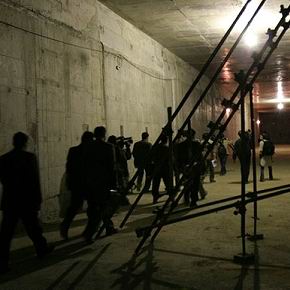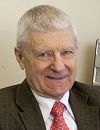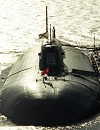The nuclear security summit in Seoul adopted a vague communique' suggesting the renunciation of highly enriched fuel. Apart from being aimed at non-proliferation, this appeal may testify to the intensification of competition for new technology in nuclear power engineering. Third World countries are being forced to adopt obsolete light water reactors, while the rivalry between leading nuclear powers is growing.
The message of the vague communique' is clear from the title of the summit: to ensure nuclear security, that is, non-proliferation of fissionable materials.
“We encourage states to take measures to minimize the use of HEU, including through the conversion of reactors from highly enriched to low enriched uranium (LEU) fuel, where technically and economically feasible…” the document reads.
Renunciation of work with HEU is bound to make it more difficult for terrorists to produce weapon-grade materials. If they steal LEU, they will have many problems enriching it to the uranium 235 level.
The communique' also reproaches the troublemakers in the nuclear field, primarily Iran, which recently has given official priority to the program of uranium enrichment to 19.75 percent. Standard fuel of light water reactors is enriched with uranium-235 by 2-5 percent.
Tehran explains that it needs this fuel for its research reactors – both operating ones and those under construction. American experts believe that the “legitimized” secret accumulation of 19.75 percent enriched uranium may play into the hands of the Iranian government if it gets an opportunity (and makes a decision) to quickly stock a reserve of weapons-grade uranium.
The communique' suggests that issues connected with the turnover of fresh and irradiated fuel (the latter is a precious material that is sometimes insultingly referred to as “nuclear waste”) should be resolved by enhancing the physical security of nuclear facilities, but does not propose any specific measures.
A leap forward
Non-proliferation considerations aside, the appeal to focus on LEU looks rather sanctimonious. Countries that do not produce nuclear technology are left with just one option, the commercial exploitation of the export technology of industrialized states – light water reactors that have almost reached the limit of being useful.
There is one more interesting point – what have nuclear powers reserved for themselves? In recent years they have seriously discussed the technology of fast-neutron reactors.
Their operating principle was formulated in the mid-1940s. Such reactors were built regularly, both small research ones and full-scale power generating units like the Soviet BN-350 in Kazakhstan’s Shevchenko or BN-600 at the Beloyarskaya nuclear power plant. The French have also advanced a long way down this road.
It is not just that the specific features of this technology provide for the fuller use of nuclear fuel, and allow the unit to generate materials for the production of this fuel, thereby closing the cycle within a plant.
The point is that fast-neutron reactors use highly enriched uranium (15-25 percent). Yes, they are considered to be users of plutonium but their technology enables them to produce it with the same ease.
On the one hand, there is nothing to discuss – a leak of this dual technology into the Third World may have an unpredictable effect on non-proliferation. Also, this technology requires highly enriched fuel.
On the other hand, it is clear that when this technology prevails, with the resolution of some engineering problems, it will oust the “slow” (“thermal”) operation that is primarily typical of light water reactors. This will happen because the new technology provides for much more rational use of fuel and an opportunity to reproduce fuel from the dominant isotope of uranium-238, which is completely useless for “thermal” reactors. It also allows for the burning of weapons-grade materials. To sum up, this is a highly attractive solution.
Standards as a competitive trick
In principle, the communique' does not impose direct bans on the use of HEU. Even if it did, would other states listen? India, for one, is consistently implementing a national program for developing fast-neutron reactors, and to impose parameters of the nuclear fuel cycle on it would be too arrogant. This is why it is too early to judge whether this is ideology of first- and second-rate models of nuclear power engineering, which cements into place the dominance of leading nuclear producers.
However, it is quite possible to prevent fast-neutron technology from being adopted commercially by Third World countries under the pretext of countering the proliferation of highly enriched materials.
And the prospects of a dirty fight between the rival projects of fast-neutron reactors from different countries are simply breathtaking. Considering the limited potential for the construction of new units in the countries of the golden billion, pressure on foreign contractors will make European fast-neutron power engineering highly vulnerable to this form of “competition.”
After Fukushima, when the world expert community reached a consensus on the rigid introduction of international mechanisms for regulating nuclear power engineering, it is the wars of standards that may become the main weapon of nuclear power industries.
A natural gas power plant will be built on the site instead.
It also urges tougher measures to keep loose fissile materials out of the wrong hands.
Obama said "serious sustained global effort" was needed to protect the world from the nuclear terrorism risk.



